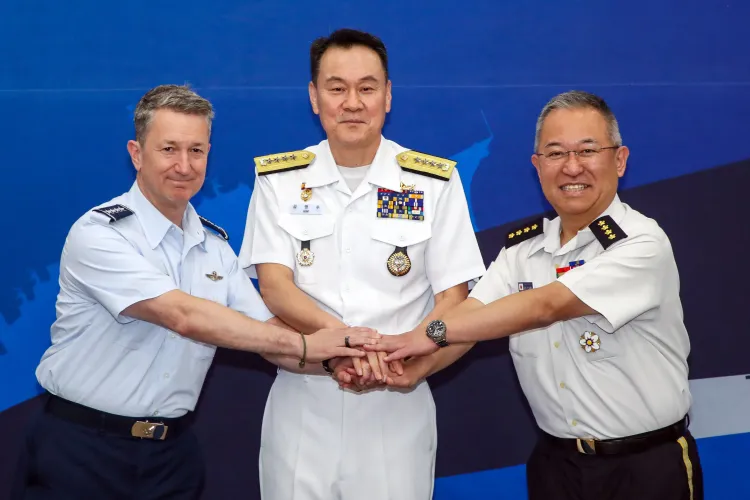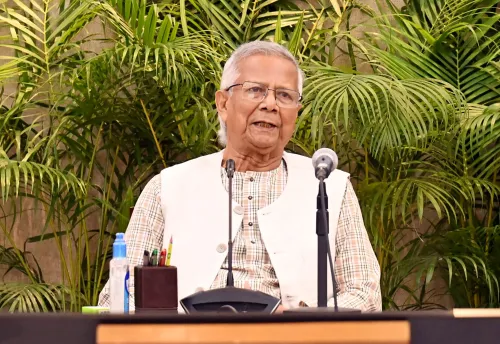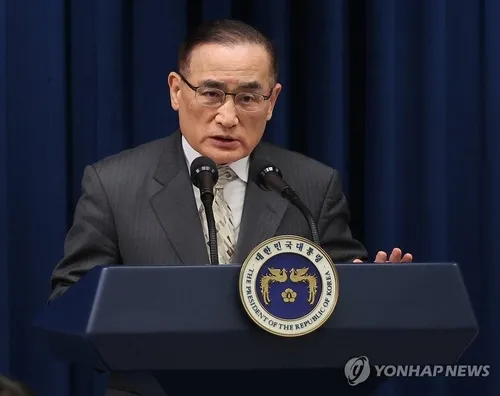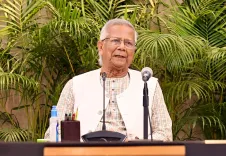Why is Trilateral Cooperation Crucial Amid North Korean and Chinese Military Buildup?

Synopsis
Key Takeaways
- Urgent need for trilateral cooperation among South Korea, the US, and Japan.
- Significant military buildup by North Korea and China poses new challenges.
- Broader security agendas now include various regional threats.
- Commitment to denuclearization remains a top priority.
- Joint efforts are essential for maintaining peace in the Indo-Pacific.
Seoul, July 11 (NationPress) The highest-ranking military official from the United States highlighted the critical need for security collaboration between South Korea, the United States, and Japan to restore deterrence against an "unprecedented" military escalation by North Korea and China.
Gen. Dan Caine, who leads the US Joint Chiefs of Staff (JCS), expressed this sentiment during a trilateral meeting in Seoul alongside his South Korean and Japanese counterparts, Adm. Kim Myung-soo and Gen. Yoshihide Yoshida.
"Our aim in the United States is to recommence deterrence, which necessitates and depends on trilateral cooperation among our three nations," Caine stated.
He emphasized that "the DPRK and China are undergoing an extraordinary military buildup with a clear and unmistakable intention to advance their respective agendas."
"We must remain vigilant, exhibiting resolve, and being proactive and innovative in our partnerships," he added.
Caine remarked on how their trilateral collaboration has broadened from merely addressing North Korean threats to encompassing wider security issues, recalling a statement made by former US JCS chief Gen. Martin Dempsey during a 2014 trilateral meeting.
"In that meeting, Gen. Dempsey noted that we are illuminating a future path together, where partnerships can evolve through continuous and regular engagement, from building capacity to genuinely sharing responsibility," he said, suggesting a shift toward greater responsibility-sharing among allies.
"The responsibility to progress lies with us three as we navigate through a particularly sensitive chapter in our nations' collective history," Caine remarked.
Both South Korea's Kim and Japan's Yoshida supported the call, stressing the urgency of sustaining the momentum of their trilateral collaboration.
"It is crucial to uphold and continually advance the momentum of our trilateral cooperation, especially as North Korea's nuclear and missile threats persist and regional security challenges arise," Kim asserted.
Yoshida urged for the promotion and institutionalization of trilateral cooperation, regardless of the domestic political situations, emphasizing the need to strengthen deterrence against the North.
After the meeting, the three military leaders issued a joint statement denouncing North Korea's "illegal" weapons development and reiterated their commitment to working towards its complete denuclearization.
They also discussed Pyongyang's increasing military alignment with Russia, including the deployment of North Korean troops to Russian territory and the potential transfer of military technology.
"The three defense chiefs reaffirmed that trilateral security cooperation has been pivotal in fostering peace and prosperity on the Korean Peninsula and throughout the Indo-Pacific region," the statement highlighted.
This meeting marked the first Trilateral Chiefs of Defence (Tri-Chod) assembly held in Seoul. Caine's visit was notable as it was the first by the top US military officer since his predecessor, CQ Brown, visited Seoul in November 2023.
Accompanying him from the US were US Indo-Pacific Command Commander Adm. Samuel Paparo Jr. and US Forces Korea Commander Gen. Xavier Brunson, as reported by Yonhap news agency.
On the sidelines of the meeting, the defense chiefs were expected to visit the South Korean Navy's 2nd Fleet command to pay tribute to the 46 fallen sailors who lost their lives during the 2010 torpedo attack on the Cheonan warship.
The next Tri-Chod meeting is scheduled to take place in the United States.










